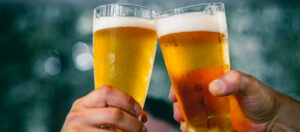It’s Oktoberfest which means, lederhosen, dirndls, oompah music, accordions, Alpenhorns, polkas, huge decorative beer steins with and without lids, and old-fashioned fun for everyone. At Miles Consulting Group (“MCG”) we love Oktoberfest and we love talking and blogging about beer. (I’ll bet you didn’t know our president and founder, Monika, is fluent in German.)
Today, we are going to talk about the ingredients in beer and how sales tax applies to them. Miles Consulting wants to make sure you beermakers aren’t paying more sales tax than you should.
Basically, there are three types of ingredients that go into beermaking: food products, raw materials and manufacturing aids. Let’s talk about how sales tax applies to each of these products.
Food Products
Food products are never subject to sales tax in California. Examples of food products in the beermaking process are: grains of any kind, sugar, molasses, gelatins, malt extracts, honey, hops, fruits and fruit juices, herbs, spices, yeasts and enzymes. None of these food products are subject to sales tax simply because food products are not subject to sales tax in California. So, if you paid sales tax on any of these food products you are entitled to a sales tax refund.
Other Non-Food Raw Materials
Raw materials or ingredients that are not food products but become part of the final beer product are not subject to sales tax when purchased by a beermaker, but only if the beermaker sells the beer. In other words, if you purchase these products for your own beer consumption and not to resale to customers then you must pay sales tax on these purchases. But, if you purchase non-food product raw materials that are physically incorporated into the beer that you sell, then you do not owe sales tax on these purchases. Examples of these non-food product ingredients are: activase, burton salts, calcium chloride, carbon dioxide, calcium sulfate, nitrogen gas, oak chips, tannic and tartaric acid.
Manufacturing Aids
Manufacturing aids are products that beermakers purchase to manufacture beer but that do not remain in the beer sold to customers; they are not physically incorporated into the final product. These products are subject to sales tax and you must pay tax to your vendor for these purchases or report the tax on your sales and use tax return as a “purchase subject to use tax.” You should not issue a resale certificate for the purchase of these products. Examples of manufacturing aids are: activated carbon, chitosan, defoaming agents, dicalite, gelatin, Irish moss, Isinglass, polyclar, silicon dioxide and talc Sierra Snow.
If you are a beer-maker and have paid sales or use tax on either food products or the non-food products that are physically incorporated into beer that you sell to your customers then you are entitled to a refund of the tax for any purchases that were made in the last three years. To obtain the refund you will need to file a claim for refund with the California Department of Tax and Fee Administration (“CDTFA”). If you have any questions please don’t hesitate to call us or email.
Oh, and during Oktoberfest, are you giving away any samples, or selling promotional products in your gift shop? Check out this blog for more information on those topics. In our next intoxicating beer blog we will focus on how sales tax applies to bottles, cans, labels, caps, containers, packaging, etc. Prost!




















